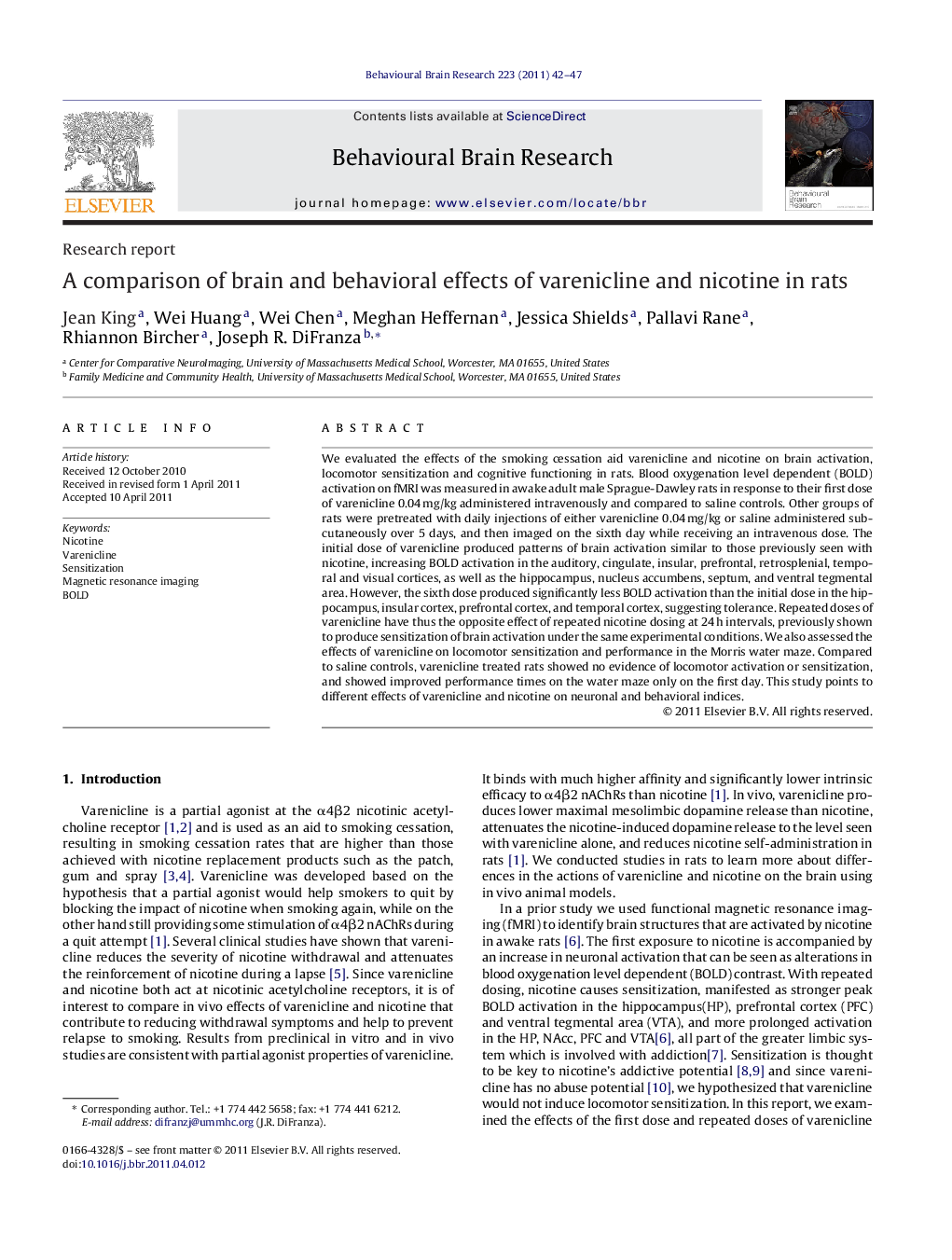| Article ID | Journal | Published Year | Pages | File Type |
|---|---|---|---|---|
| 4313428 | Behavioural Brain Research | 2011 | 6 Pages |
We evaluated the effects of the smoking cessation aid varenicline and nicotine on brain activation, locomotor sensitization and cognitive functioning in rats. Blood oxygenation level dependent (BOLD) activation on fMRI was measured in awake adult male Sprague-Dawley rats in response to their first dose of varenicline 0.04 mg/kg administered intravenously and compared to saline controls. Other groups of rats were pretreated with daily injections of either varenicline 0.04 mg/kg or saline administered subcutaneously over 5 days, and then imaged on the sixth day while receiving an intravenous dose. The initial dose of varenicline produced patterns of brain activation similar to those previously seen with nicotine, increasing BOLD activation in the auditory, cingulate, insular, prefrontal, retrosplenial, temporal and visual cortices, as well as the hippocampus, nucleus accumbens, septum, and ventral tegmental area. However, the sixth dose produced significantly less BOLD activation than the initial dose in the hippocampus, insular cortex, prefrontal cortex, and temporal cortex, suggesting tolerance. Repeated doses of varenicline have thus the opposite effect of repeated nicotine dosing at 24 h intervals, previously shown to produce sensitization of brain activation under the same experimental conditions. We also assessed the effects of varenicline on locomotor sensitization and performance in the Morris water maze. Compared to saline controls, varenicline treated rats showed no evidence of locomotor activation or sensitization, and showed improved performance times on the water maze only on the first day. This study points to different effects of varenicline and nicotine on neuronal and behavioral indices.
► The initial dose of varenicline produced brain activation similar to that seen with nicotine. ► Repeated doses of varenicline did not produce locomotor or neural sensitization. ► Varenicline improved performance on the water maze only on the first day.
